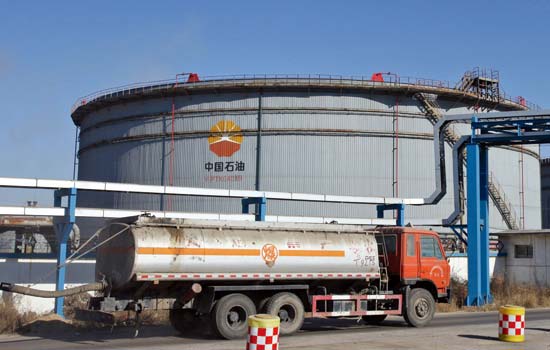 |
|
|
|
|||||||||||
Official says energy companies that go abroad face restrictions
China should spare no effort in helping energy companies go abroad in the years ahead, despite the restrictions some countries have set on investments and possible political risks.
That's according to Li Rongrong, former chairman of the State-owned Assets Supervision and Administration Commission and a member of the National Committee of the Chinese People's Political Consultative Conference.
 |
|
A crude oil storage facility owned by China National Petroleum Corp in Tianjin. China ranks fifth globally in overseas investment, with much of the capital going into the energy industry.?[Photo/China Daily] |
"Some foreign countries are already alert to China's proposals to invest overseas, especially those pertaining to energy companies," Li said.
"But this cannot stop the Chinese government from supporting them. China should do it in a smart way," Li added without elaborating.
In his annual Government Work Report, Premier Wen Jiabao said China will guide all sorts of companies, including those in the "energy, raw materials, agriculture, manufacturing, service and infrastructure" industries, to invest abroad using mergers and acquisitions.
Wen's words marked the first time that China has used such a report to list the specific industries it is encouraging outbound direct investment to go into.
As the rating for US government bonds decreases and the European debt crisis worsens, "the world economy will, in the long term, enter into low-speed growth or even a recession," said Liu Kegu, former vice-president of China Development Bank and also a member of the National Committee of the CPPCC.
That will give Chinese companies the "rare chance to invest in various industries, especially mining resources and high-tech."
China is now the fifth-largest country in terms of overseas investments, and the majority of its money is going into the energy and commerce-services industries. In 2011, the country's outbound direct investment into the non-financial sector increased by 1.8 percent from a year earlier to reach $60.1 billion.
But "there has been much doubt and opposition from around the world in response to China's energy investments overseas," Li said.
In a well-known case in 2005, China National Offshore Oil Corp withdrew a $18.4-billion bid for the oil company Unocal Corp amid political opposition in Washington.
Zhao Qizheng, spokesman for the annual session of the National Committee of the CPPCC, said recently that China should use diplomacy to help Chinese companies expand overseas.
Wu Yongping, director of the Shanxi Coal Industry Bureau, said Chinese energy companies need more help. "Developing coal resources overseas could help meet China's demand for energy, and it is also what large-scale companies are prepared for," he said.
But that is not enough.
"Coal companies always complain that they are in a disadvantageous position when it comes to the global competition for deals, since they are not well-informed about global markets."
Wu suggested that the Chinese government "play a bigger role, offering all sorts of information on subjects ranging from technology to laws to investment policies in foreign countries, to pave the way for domestic companies."
dingqingfen@chinadaily.com.cn